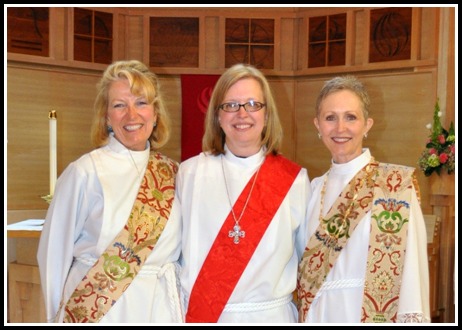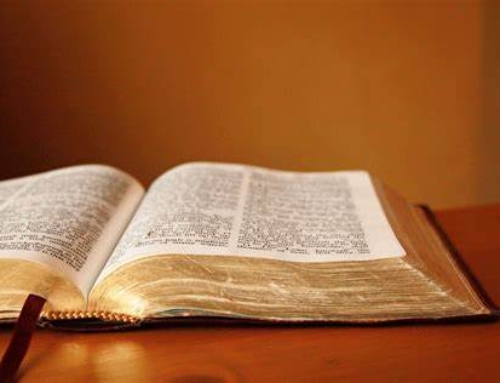In the push to have women deacons we should stop and ask ourselves some practical questions. First of all, what would a woman be able to do in the church by virtue of being a deacon that women cannot do already?
Women already fill an extraordinary number of functions in the church. They are canon lawyers, Vatican administrators, Diocesan chancellors, directors of Catholic charities, school principals, theologians, spiritual directors, catechists, directors of faith formation, authors, journalists, bloggers, directors of education for dioceses, diocesan lawyers, directors of finance, fund raisers–the list could go on and on.
So what exactly could a woman deacon do that women are not already doing? The only thing I can think of are the rather minimal liturgical functions of the deacon at the altar, reading the gospel and preaching at Mass, and also baptizing and officiating at weddings.
Even so, women lectors are commonplace at Mass. They may not read the gospel, but they read the rest of the Scripture lessons, chant the psalm and serve as extraordinary ministers of Holy Communion.
That leaves preaching. It is true that a woman is prohibited from preaching at Mass, but she is not prohibited because she is a woman, but because she is not a cleric.
Women are certainly not prohibited from preaching in the Catholic Church. There are powerful and dynamic women evangelists and speakers who are busy around the world speaking, preaching and teaching at non-Eucharistic events. I am thinking of Johnette Benkovic, Mother Angelica, Abby Johnson, Sherry Weddell, Kimberly Hahn, Simcha Fisher, Dawn Eden, and you can probably complete the list.
Some women would be great preachers, and a man is not a good preacher just because he is a man and not just because he is a priest. So why don’t we examine the reasons for clerics only preaching at Mass. Was the rule established just because the clerics were the theologically educated ones? If so, we’ve moved on. There are plenty of men and women who are fantastic speakers, fully theologically trained and would be good preachers.
Is the preacher only a deacon or priest because they are male and the preacher at Mass must image Christ? I doubt it, but a better theologian or liturgist than me is welcome to correct me.
If this is the only thing, and we want to resurrect some old tradition, why not bring back the order of lector and make it something recognized by the church, in which a certain level of training, skill and calling are required and have it open to men and women? Seems to make sense to me.
For that matter, why not bring back all the minor orders and require training and commissioning of the lay people for a work they are called to? Porters? Ushers and greeters. Exorcists? those who have a counseling and healing ministry. Acolytes? Altar servers and sacristans.
There is a second question: “What could a woman deacon do that a man cannot do which would make it necessary for women to be ordained as deacon?” I spoke to a proponent of women deacons some time ago and she said, “Women deacons are needed to conduct weddings and baptize in areas where there are not many priests.”
But such people don’t need to be women. This is not an argument for women deacons. This is an argument for more clerics.
But instead of creating more clerics and clericalize the church further, why not authorize trained catechists to baptize and officiate at marriages? There are some administrative functions that require a cleric, like signing off on tribunal papers and so forth, but again, why create more clerics? Just change the rules allowing a canon lawyer (who could be a woman) to sign off on the paperwork.
So then, what might a woman deacon do that requires her to be female? It would be important to find this unique function which would demand that women be ordained. In the early church it was the custom of naked baptisms. Clearly a woman needed to be there to preserve modesty and decorum. What sort of functions in the modern world require specifically that a woman be ordained?
I can think of some areas of ministry where a woman would be preferred to a man. Where there are questions of sexual abuse or intimate marital problems a woman would, arguably be better than a man. If there were areas of ministry regarding family law, defense of children, support of abused women legally etc. a woman would, arguably be more appropriate and do the job better. One can think of other areas like counseling, spiritual direction and marital advice where the intimacy required would demand a woman rather than a man.
These are all vital and useful ministries that might require a woman, but they do not require a deacon. Indeed, repeating the point above, plenty of women are already doing these jobs and ordination is not required.
There is another interesting aspect to the question and this is the development of transitional deacons. At first the deacons were chosen to administer charity to the poor, and eventually they came to increasingly administer the temporal goods of the church. Only later did they assume a liturgical role and then later did the tradition develop that the diaconate was a stepping stone to the presbyterate.
There is confusion therefore about the transitional diaconate. While we’re being radical, why not do away with that and have only the permanent diaconate? That would help to clarify matters. and if women are to be admitted to the diaconate, then doing away with the transitional diaconate would help clarify their role.
There is one other interesting aspect to this debate. Some proponents of women’s ordination talk about “resurrecting the ancient order of women deacons.” This is a form of primitivism and primitivism is always a messy business. I have written about it here.
Primitivism is the temptation to believe that there some golden age or practice from the past which is better and should be restored. The problem with this is that nobody can say exactly which age was the golden age or which ancient practice should be restored and which should not.
In the question of women deacons, shall we restore the women deacons of the second and third century when they helped with naked baptisms? If we restore that order of deaconesses why do we not also restore naked baptisms? If we are wanting to restore an ancient order, why do we not go all the way back to the beginning when the apostles chose only men to be deacons? If we are restoring an ancient order why not go back to the time before Vatican II when the only deacons were transitional deacons?
Who is to say which age or which practice we restore?
The answer is, the restorationist always picks and chooses what he wants to restore.
Women deacons? Time will tell.







Leave A Comment
You must be logged in to post a comment.